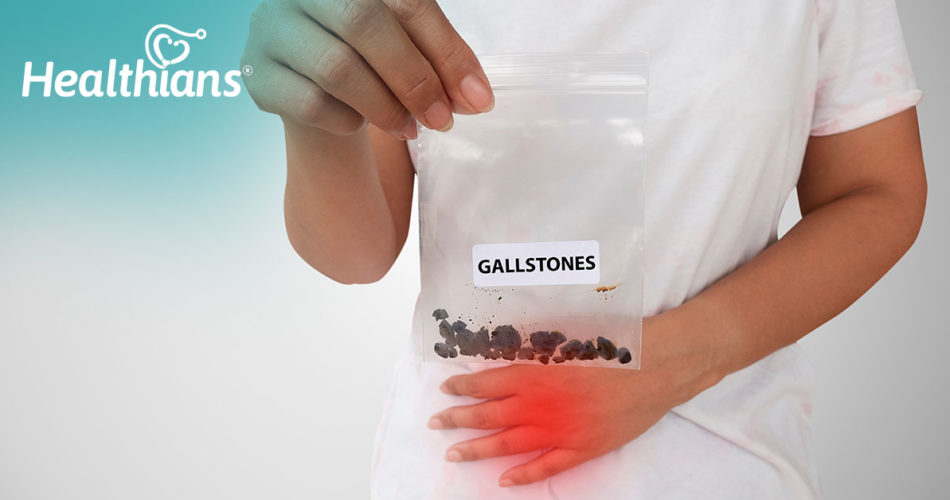Contributed by: Healthians Team
Introduction
The gallbladder is an important part of the digestive system because it helps to store and release the bile that the body uses to digest fat.
If you have gallbladder stones, infections, chronic inflammations, or gallbladder polyp, your doctor may recommend Cholecystectomy or gall bladder stone surgery.
In this surgery, the surgeon removes the gallbladder as an effective treatment for gallstones.
While there are often few to no complications post-surgery, you may experience digestive discomfort, including:
- Nausea
- Vomiting
- Diarrhoea
- Loose motions
- Gassiness
- Bloating
Gallbladder surgery dietary modifications: The best diet after a cholecystectomy
Gallbladder research suggests that these common post-cholecystectomy digestive side effects are due to the continuous release of bile into your intestines.
Thankfully, changing your diet is a quick and simple way to help your body adjust its metabolism to the missing organ.
By focussing on the best foods for gallbladder removal surgery, you should see a significant improvement in the above discomforting symptoms.
Fibre-rich foods
Fibre can no doubt help settle your stomach and balance out your bile levels. However, a high fibre intake after gallbladder removal might trigger uncomfortable abdominal cramping and gassiness.
It is recommended that you should reduce your intake of broccoli, cauliflower, beans, almonds, whole grain or whole wheat bread, high fibre cereals, legumes, sprouts, and so on.
All of these should be consumed in moderation to avoid discomfort after your surgery.
Anti-oxidant-rich foods and vegetables
Studies have shown that increasing your intake of fresh fruits and vegetables, can improve your body’s natural healing processes after surgery.
This is because most plant-based foods are the top dietary source of vitamins, minerals, and antioxidants that can help speed your postoperative healing and recovery.
Top choices after cholecystectomy include dark green, leafy vegetables like spinach, kale and cabbage, and colourful veggies, such as tomatoes and Swiss chard.
If you find that citrus fruits like oranges and grapefruit are too acidic, stick with apples, bananas, avocado, berries, blueberries and strawberries.
Lean meats
After you’ve had your gallbladder removed, it is important to rethink the types of meat and the specific cuts of meat that you eat.
Consider reducing your intake of meat and think about switching to a plant-based diet.
It is also recommended that you eat lean meats if you decide to continue eating animal products, such as chicken breast and white fish.
Low or no-fat dairy products
Milky coffee drinks, such as whole milk lattes, may be difficult to digest. Look for low-fat or non-dairy options produced with soy or almond milk instead.
The probiotics in fermented dairy products like yoghurt and kefir can be beneficial after gallbladder surgery because they speed up the body’s healing process and also boost your digestive health.
If you choose to eat fermented dairy products or any other type of dairy, strive for low- or no-fat dairy as it can interfere with your recovery.
Healthy options include greek yoghurt, skim milk and low-fat mayonnaise. Herbal teas, particularly peppermint tea, can also be quite calming to the digestive tract.
Beverages
After having your gallbladder removed, you may need to avoid sodas and alcohol for a while.
High-sugar drinks, such as sweetened juices and concentrates, should be avoided since they increase the production of stomach acids and increase gas formation.
It is also recommended that you drink water and other healthy fluids – soup, juices, and dal ka paani throughout the day.
Final thoughts
Remember, no single diet will work best for everyone who has their gallbladder removed.
It is recommended to look for eating patterns that irritate the intestines and adapt your diet accordingly.
Most people may only need temporary dietary changes after gallbladder removal, but others—especially those whose diets were previously heavy in fat or carbohydrates and poor in fibre—will need to make permanent adjustments.
If you experience new or persistent symptoms following gallbladder removal, you should consult a doctor.
Finally, remember, gallstones are no joke. If not treated on time, they can cause severe complications. Hence, it’s best to have them removed the moment your doctor recommends it.




